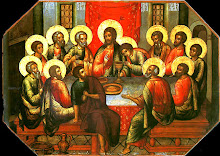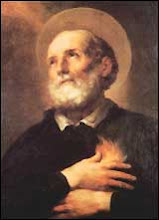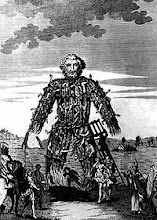Thomas Woods' fine book, How the Catholic Church Built Western Civilization, relates many ways that Catholic monasticism not only preserved much that was true, good, and beautiful, but also brought forth the same.
It is generally known by critics that before Henry's dissolution of the monasteries fully one-fifth of England was held by monasteries, but few recall that it was precisely the most uncultivated and uninhabited land prior to the monks working on it and, therefore, most easily given to them.
Henry Goodell in a paper presented before the Massachusetts State Board of Agriculture relates the following about the land around Southampton, England before the founding of Thorney Abbey:
It was nothing but a vast morass .. a labyrinth of black, wandering streams; broad lagoons, morasses, submerged every spring-tide; vast beds of reeds and sedge and fern; vast copses of willow, alder and gray poplar, rooted in the floating peat ... Trees torn down bh flood and storm floated and lodged in rafts, damming the waters back upon the land ... Nature left to herself ran into wild riot and chaos more and more, till the whole fen became one dismal swamp.
It is a counterfeit of Paradise, where the gentleness and purity of heaven appear already to be reflected. In the midst of the fens rise groves of trees which seem to touch the stars with their tall and slender tops; the charmed eye wanders over a sea of verdant herbage, the foot which treads the wide meadows meets with no obstacle in its path. Not an inch of land as far as the eye can see reach lies uncultivated. Here the soil is hidden by fruit trees; there by vines stretched upon the ground or trailed on trellises. Nature and art rival each other, the one supplying all that the other forgets to produce. O deep and pleasant solitude! Thou hast been given by God to the monks, so that their mortal life may daily bring them nearer to heaven.
Their rapacious greed and lust for wealth grabbed and plundered, all quite legally and justifiably, given the sacrificial realities that were called "the reformation." And today England is reaping a different kind of fruit: a void of secularity, a paucity of faith and morals, and soft-core nihilism, being filled by a very different kind of religion than the Old Faith. Neo-paganism and the Scimitar.
When the Prodigal finally "came to himself," he found the quickest way to redemption was coming home to his Father. This is the only way for the West. Come home. Quick as you can.








No comments:
Post a Comment